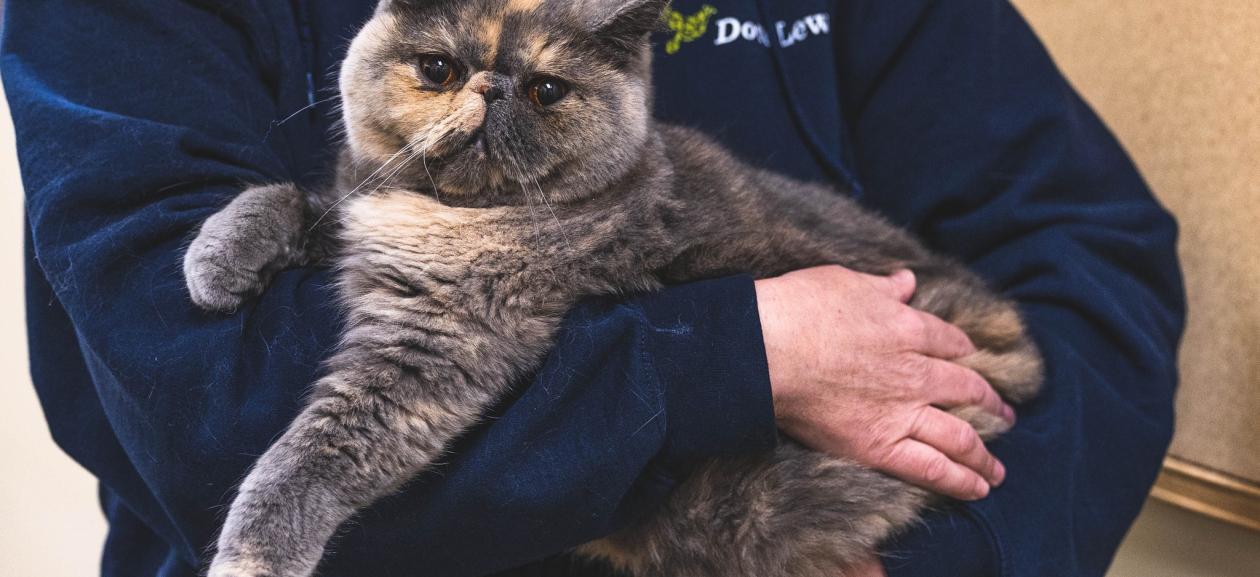
Signs of Heart Disease in Cats and Dogs
Just like humans, pets' hearts can face health challenges, from congenital heart defects to conditions acquired over time, such as heart murmurs, arrhythmias, or even heart failure. Signs of heart disease can sometimes be subtle, so it's important to be aware of them so that you can catch potential issues early.
 Common Signs of Heart Disease in Dogs
Common Signs of Heart Disease in Dogs
- Coughing: A persistent cough, especially after exercise, could indicate heart disease.
- Breathing Difficulties: If your dog is having trouble breathing or seems winded after mild exercise, this could be a sign of a heart issue. Rapid or labored breathing may occur because the heart is struggling to pump blood efficiently, leading to fluid buildup in the lungs.
- Fatigue or Weakness: Dogs with heart disease may tire easily and show less enthusiasm for walks, playing, or other activities they used to love. They may also experience sudden bouts of weakness or collapse, especially during or after physical activity.
- Swollen Abdomen: A bloated or swollen abdomen can be a sign of heart failure. When the heart is not pumping properly, fluid can accumulate in the abdomen, leading to swelling.
- Reduced Appetite and Weight Loss: As heart disease progresses, pets may experience a reduced appetite, leading to weight loss.
Fainting or Collapsing: Fainting or collapsing episodes can be a serious sign of heart disease in dogs. These may be caused by arrhythmias (irregular heartbeats) or decreased blood flow to vital organs. If you notice your dog fainting, it’s important to see a veterinary cardiologist for care.
 Common Signs of Heart Disease in Cats
Common Signs of Heart Disease in Cats
- Lethargy or Weakness: One of the most common signs of heart disease in cats is a noticeable decrease in energy levels. If your cat is no longer as active, playful, or interested in their usual activities, this could be a sign of heart stress.
- Poor Appetite: A sudden or gradual loss of appetite can indicate underlying health problems, including heart disease. If your cat is eating less than usual or refusing food altogether, it could be a sign that something is wrong with their heart.
- Difficulty Breathing or Shortness of Breath: If your cat is struggling to breathe or has a noticeable increase in the effort it takes to breathe, it could be a sign of fluid buildup. You might also notice your cat breathing faster than usual, or they may sit in a hunched position to make breathing easier.
- Weight Loss: Unexplained weight loss can be a sign of heart disease, especially if your cat continues to eat but is losing weight.
- Hind Leg Weakness or Paralysis: One of the more serious symptoms of advanced heart disease in cats is hind leg paralysis or weakness. This can happen when blood clots form in the heart and travel to the legs, causing a condition known as saddle thrombus.
Diagnosis and Treatment
If you notice any of these symptoms in your pet, it’s important to consult with your veterinarian or a veterinary cardiologist as soon as possible. They will perform a thorough exam and may recommend additional tests to diagnose heart disease. These tests can include:
- Blood tests to check for any underlying conditions contributing to heart disease
- Chest X-rays to assess heart size and look for signs of fluid buildup
- Electrocardiogram (ECG) to detect irregular heartbeats
- Echocardiogram (ultrasound of the heart) to evaluate the heart’s structure and function
- Blood pressure measurements to detect hypertension
Once diagnosed, treatment options depend on the type and severity of the heart condition. For example, medication to regulate heart rate, control blood pressure, and reduce fluid buildup may be prescribed. In some cases, surgery or other procedures may be necessary.
Prevention and Management
While not all heart disease can be prevented, especially when it’s due to genetic factors or aging, there are steps you can take to help protect your pet’s heart:
- Routine Vet Visits: Regular checkups are crucial in detecting heart disease early.
- Maintain a Healthy Weight: Obesity can put extra strain on your pet's heart, leading to an increased risk of heart disease.
- Monitor for Symptoms: Pay attention to any changes in your pet’s behavior, appetite, or physical appearance.
- Tailored Diet: A heart-healthy diet, possibly prescribed by your veterinarian, can play an important role in managing or preventing heart disease. Some diets are specifically designed to support heart health and may include supplements like omega-3 fatty acids.
Heart disease can affect pets of all ages, sizes, and breeds, and its symptoms may be easy to overlook. If you suspect your pet is showing signs of heart disease, it’s essential to act quickly to get them the care they need. If you have any concerns about your pet’s heart health or need advice on treatment options, our veterinary cardiology team at DoveLewis is here to help.
Recent Posts
Marijuana Toxicity in Pets: What You Need to Know
As availability of marijuana increases in the Portland area since legalization, so have the number of marijuana toxicity cases treated at DoveLewis. Our doctors warn pet owners of the potential risks to their dogs and cats if marijuana is ingested in any form.
Dog Bite Prevention Tips
Now more than ever, people are venturing outside with their pets to get fresh air. This is increasing the possibility of interactions with other dogs that can lead to bites and injuries. DoveLewis is sharing tips to help prevent this from happening so animals and humans can stay safe.
How to Build a Pet First Aid Kit
Every pet owner should have a pet first aid kit handy in case of an emergency. If you need to put one together, we’ve got you covered!



